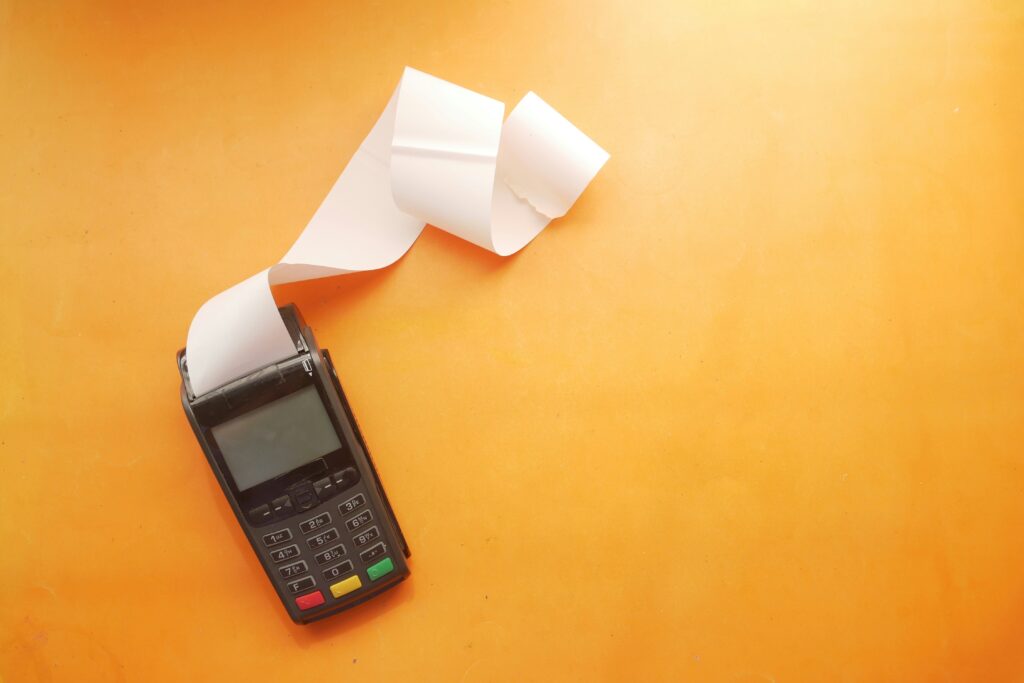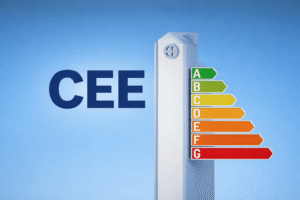More and more foreigners are looking to buy property in Spain, representing 13% of demand, but a majority of them do not inquire about the specificities of the market and the property buying process in the country. They therefore sometimes face difficulties that can be costly.
Terreta Spain sheds light on the 6 mistakes to AVOID ABSOLUTELY if you want to invest in real estate in Spain.
MISTAKE #1: Ignoring the legal specificities of a property purchase in Spain
Spain is divided into 17 autonomous communities, each with its own tax and administrative regulations. The application of taxes and procedures therefore differs from one region to another.
It is also not uncommon to find buyers who underestimate the time required to obtain the NIE (Número de Identidad de Extranjero). This administrative formality is step number 1 in the property purchase process in Spain, and since the pandemic, the average time to obtain it has been extended to 45 working days on average, compared to 15 days before Covid.
It is also essential to understand that the role of the notary is minimal in the real estate process in Spain. It is limited to authenticating signatures and does not guarantee the legality of constructions, the absence of debts, or the legal conformity of the property. In 1 sentence: it is the buyer's responsibility to ensure that the property is legally compliant and in good condition. To do this, he must surround himself with the right people. We will come back to this.
MISTAKE #2: Hidden costs and poorly anticipated budget: the classic mistake of foreign buyers
This is a very common and... costly mistake. It is important to know that the additional costs often exceed initial forecasts, which can compromise the financial balance of the project. We advise you to read our guide on purchase costs, but here is a list of expenses to take into account:
- The purchase price, of course.
- The ITP, the Single Tax on Patrimonial Transfers. It varies greatly from one autonomous community to another.
- Notary fees.
- Registration fees.
- VAT for new properties.
- Bank charges.
- The fees of a lawyer, a specialized real estate advisor, or both.
It should also be remembered that a property purchase implies long-term financial constraints:
- The IBI, the property tax.
- Tax obligations depending on the type of rental chosen, in Spain, as in the country of origin.
- Management fees.
- Renovations and other condominium expenses.
The experts at Terreta Spain are with you from the first phase of your real estate project in Spain. Contact our team to learn more.

MISTAKE #3: Not checking the actual condition of the property, a costly mistake
Visiting a property, envisioning yourself there, is very pleasant, but it is useless, even risky, if it is not accompanied by a precise inspection of the property. It is essential before making an offer, yet it is often rushed by owners who are too hurried or too confident. Unfortunately, properties threatened by infiltration, electrical or plumbing problems are not the exception but rather the norm in Spain.
Old properties may also be subject to certain major legal constraints that must be known before starting.
- Properties under historical protection (BIC) represent 14% of the old real estate stock and impose drastic restrictions, such as the prohibition of modifying facades, the obligation to use specific materials for renovations, or prolonged administrative delays for any intervention.
- Real estate seized by banks is very financially attractive, but it can involve a risk for the buyer: unpaid community debts, need for major work, etc.
- Properties under official protection (VPO), that is, social housing or housing subject to price controls, are also very controlled by local authorities. Their acquisition and resale are subject to specific rules.
Terreta Spain experts share their checklist of essential checks
- Check that the property is not subject to a specific regime.
- Verify that the property meets the standards to be inhabited and request a copy of the Cédula de habitabilidad. To learn more, read our practical guide.
- Obtain the Nota simple, a kind of identity card for the property. Our practical guide tells you everything on the subject.
- It is important to check the Certificado energetico, it will allow you to know if the property is energy efficient or if work should be considered.
- Ask for receipts of payments of local taxes, charges and invoices to be clear on the financial situation.
- Verify the previous sales agreement.
- Precisely check the physical condition of the property (plumbing, condition of the walls, electricity, etc.).
- Walk around the neighborhood to verify that it meets your expectations.
- Verify that the property is not illegally occupied. Okupas = 100% danger.
ERROR #4: Trying to buy alone without a lawyer or advisor: a risky gamble
We advise against entering the Spanish real estate market alone.
- Traditional real estate agents are paid by the seller. They are not there to advise buyers.
- There may be a misunderstanding of international standards.
- Conflicts of interest are common.
- Refusal to allow an independent entity to inspect the property is not uncommon.
- The purchase price may be manifestly inflated.
- Preliminary contracts (such as the arras contract) are often offered in Spanish without translation.
Terreta Spain offers a bespoke support service throughout Spain, tailored to the needs of international buyers. A kind of "real estate coaching". Our experts:
Will help you define your project (budget, type of property, ideal location).
They will explain all the steps to follow and help you avoid mistakes.
They will advise you on price negotiation.
They will direct you to the right professionals (lawyer, notary, bank, surveyor, etc.).
They will check important documents for you (Nota Simple, certificates, charges, etc.) and secure your purchase.
They can visit properties for you if you are at a distance.
They will support you after the purchase: insurance, rental management, taxation.
ERROR #5: Poor understanding of the key stages of the real estate purchasing process in Spain
The process of buying property in Spain follows a precise sequence that must be mastered to avoid disappointment. We have detailed it in our practical guide: "The property purchase process in Spain".
Let's list here the essential points to which great attention must be paid during this purchasing process:
- Carefully analyze the location before starting (infrastructure, commerce, transport, frequentation, green areas, etc.). Your Terreta Spain real estate advisor can show you the properties and their surroundings by video. This saves time, money and unnecessary travel.
- Negotiating the price and terms of purchase is strategic. Again, the experience of a professional familiar with the local market makes all the difference.
- Some negotiating levers are underutilized by buyers: the financing contingency clause, which covers the risks of loan refusal, or the delivery guarantee for off-plan purchases, for example.
- Signing the reservation contract and paying the deposit constitutes a significant commitment that deserves increased vigilance. It is important to insist that this contract includes specific protective clauses, such as clearly defined conditions precedent, balanced penalties in the event of non-compliance with deadlines, and a detailed and exhaustive description of the property and services included. A study by the Registradores (the notaries of Spain) published recently highlights that in 2024, nearly 30% of legal disputes concerned disputes over deposits.
- The signing of the final deed before a notary also requires an ultimate verification of all documents and the property itself.
The advice of Terreta Spain's experts
If you like a property and all the checks have been carried out, don't wait before formalizing an offer. In 2025, the market is saturated by demand but the stock of available properties is collapsing, follow our buying guide in 2025.
MISTAKE #6: Buying without anticipating rental management and tax obligations
Once the title deed is signed, the property is yours. You will need to:
- Insure it as quickly as possible. Terreta Spain can take care of it for you. Discover our practical guide on the subject by clicking here.
- Make a choice regarding its rental management:
- Manage it yourself, which is free but can be energy-intensive and time-consuming.
- Delegate rental management to a specialized agency like Terreta Spain.
- Plan your tax obligations in Spain and your country of origin. As tax rules change regularly, professional monitoring can be wise. Our experts can put you in touch with experienced professionals.
BEST PRACTICES for a successful property purchase in Spain
Take the time to get informed
Before even planning visits, learn to understand the specificities of the Spanish property market:
- Differences between regions (taxes, procedures, planning rules).
- Limited role of the notary.
- Importance of the NIE and legal checks.
Consult specialized guides and surround yourself with local professionals.
Build a realistic budget
Don't forget that the advertised price is only the visible part of your investment. Take into account:
- Additional costs (taxes, notary, lawyer, registration).
- Possible works.
- Recurring costs (IBI, condominium fees, maintenance).
- Local taxation and that of your country of origin
Carefully select the professionals who assist you
A lawyer specializing in Spanish property law is essential.
If you want to be guided at each stage, using a property advisor dedicated to foreign buyers, like Terreta Spain, is a real asset.
Check everything, without exception
Before signing anything, make sure you have in your hands:
Nota Simple (ownership and debts)
Cédula de habitabilidad (compliance with habitation regulations)
Energy certificate
Receipts for taxes and charges paid
Complete technical diagnosis
History of sales deeds
Take your time to visit and evaluate.
Don't be pressured into buying. Take the time to visit several properties, analyze the neighborhood, and obtain a technical report.
If you cannot travel, ask your property finder to organize detailed video tours.
Anticipate the post-purchase phase.
As soon as you become an owner, remember to:
- Take out home insurance.
- Manage the rental process (if needed) with a reliable local agency.
- Implement fiscal monitoring with an advisor who understands the tax treaties between Spain and your country.

In summary
1️ Get well informed
2️ Surround yourself with professionals
3️ Check every document
4️ Stay vigilant throughout the process
5️ Anticipate post-purchase management
With this approach, you transform your real estate purchase in Spain into a great success and not a source of stress.
Need tailor-made support?
Contact the experts at Terreta Spain and take advantage of our turnkey support.
Conclusion
Spanish real estate is attracting more and more foreign investors: to be among those whose project is a success, the key is to be well informed and surround yourself with the right people.
Sources:
Terreta Spain, Registradores de Espana, Idealista
FAQ – Mistakes to avoid when buying property in Spain – 2025
1. What are the most common mistakes when buying property in Spain?
- Neglecting legal preparation (NIE, Nota Simple, legal checks).
- Underestimating the overall budget (additional costs, local taxes).
- Visiting too quickly without carrying out a complete technical check.
- Embarking on the process alone without a local expert.
- Misunderstanding key steps such as signing the deposit agreement.
2. What costs should be anticipated in addition to the purchase price in Spain?
Beyond the price of the property, you must anticipate:
- The transfer tax (ITP) or VAT (for a new property).
- Notary and registration fees.
- The fees of a lawyer or real estate advisor.
- The bank charges in the event of a loan.
- The IBI (equivalent to the Spanish property tax).
3. Why is it risky to buy without a lawyer in Spain?
In Spain, the notary does not have the same role as in France. They authenticate signatures, but do not verify the legal compliance of the property, nor the absence of debts.
Only a specialized lawyer ensures a complete verification to secure your purchase.
4. What checks should be carried out before buying a property in Spain?
The main checks are:
- Obtain the Nota Simple (ownership and debts).
- Check the Cédula de habitabilidad.
- Check the energy performance certificate.
- Inspect the general condition of the property (plumbing, electricity, structure).
- Verify the financial situation (local taxes and charges paid).
- Confirm that the property is not illegally occupied (okupas).
5. Why use Terreta Spain for your property purchase in Spain?
Terreta Spain offers comprehensive support specifically designed for international buyers.
- Personalized advice on the choice of property and region.
- Legal and technical verifications.
- Assistance with negotiation and administrative management.
Follow-up after the sale (insurance, rental management, taxation).
The goal? Secure your investment and save you time and money.






